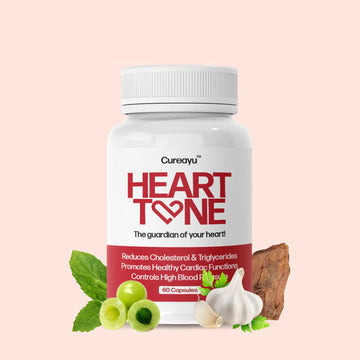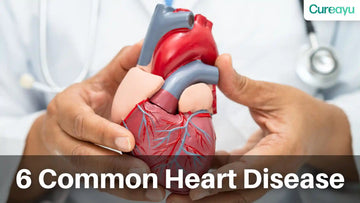Experiencing chest pain can be alarming, as many people immediately associate it with heart problems. However, one common cause of chest discomfort is excessive gas in the digestive tract. Gas buildup can lead to a sharp, uncomfortable pain in the chest, which is often mistaken for more serious conditions like a heart attack. While gas-induced chest pain is generally not life-threatening, it is important to understand its symptoms and differentiate it from other causes of chest discomfort.
Chest pain due to gas is a result of trapped air in the stomach or intestines that pushes against the diaphragm, which can radiate pain to the chest. This discomfort can be caused by various factors, including poor digestion, swallowing air while eating, or certain medical conditions like irritable bowel syndrome (IBS). Learning to recognize the signs of gas-related chest pain and how to manage or prevent it can help alleviate fears and provide relief.
Also Read: Protecting Your Heart: Essential Tips for Heart Health
How Does Gas Make Pain In Chest?
Gas-induced chest pain occurs when excessive air or gas accumulates in the digestive system. This gas can put pressure on the stomach, esophagus, and even the diaphragm, creating a sensation of tightness or discomfort in the chest. The gas pushes against the diaphragm, which is located just below the lungs. Since the diaphragm shares nerves with the chest and abdomen, any pressure or irritation can lead to pain that is felt in the chest area.
Gas pain in the chest is typically caused by swallowing air while eating or drinking too quickly, consuming carbonated beverages, or eating foods that produce excess gas during digestion (such as beans, cabbage, or certain dairy products). In some cases, conditions like gastroesophageal reflux disease (GERD) or irritable bowel syndrome (IBS) can also trigger gas buildup that leads to chest pain.
Gas Pain Symptoms In Chest
- Sharp or Stabbing Pain: Gas-induced chest pain often feels sharp or stabbing and may occur suddenly. It is typically localized to one area but can radiate to the shoulder or back.
- Pressure or Tightness: Many people feel a sensation of pressure or tightness in the chest, which is often mistaken for heart-related pain. This pressure is due to the gas pressing against the diaphragm and chest wall.
- Bloating: Gas pain is often accompanied by bloating, which can cause additional discomfort and a feeling of fullness in the abdomen.
- Burping or Flatulence: Excess gas may cause frequent burping or flatulence, as the body attempts to release the trapped air.
- Pain Worsens with Movement: Gas pain may intensify when you move, especially if bending over or lying down. These positions can increase the pressure of gas on the diaphragm.
- Relief After Passing Gas: One clear sign that chest pain is due to gas is that it often subsides after belching or passing gas.
Also Read: Top 15 Heart Healthy Foods
Difference Between Gas Pain and Heart Pain
|
Gas Pain |
Heart Pain |
|---|---|
|
Often feels sharp or stabbing |
Typically feels like a squeezing or pressure |
|
Worsens with movement or after meals |
May worsen with exertion or stress |
|
Can be relieved by burping or passing gas |
Is not relieved by releasing gas |
|
Associated with bloating and fullness |
Can be accompanied by shortness of breath, sweating, and nausea |
|
Does not radiate to the arm or jaw |
May radiate to the left arm, jaw, or neck |
|
Typically localized and does not move |
Pain can spread across the chest |
Complications
- Misdiagnosis: Gas pain in the chest can be easily mistaken for more serious conditions like a heart attack, which can lead to unnecessary anxiety or medical treatment.
- Acid Reflux: Gas buildup can worsen conditions like GERD, leading to acid reflux and more frequent heartburn.
- Digestive Issues: Chronic gas pain may indicate underlying digestive disorders such as IBS or lactose intolerance, which require medical attention.
- Discomfort and Disruption: Severe gas pain can disrupt daily activities, leading to discomfort and fatigue from poor digestion.
Prevention of Gastric Pain In Chest
- Eat Slowly and Mindfully: Eating too quickly can cause you to swallow excess air, leading to gas buildup. Take your time with meals and chew food thoroughly to aid digestion and prevent excess gas.
- Avoid Carbonated Beverages: Drinks like soda and sparkling water contain carbon dioxide, which can contribute to gas buildup in the digestive tract. Opt for non-carbonated drinks to reduce the risk of gas-induced chest pain.
- Limit Gas-Producing Foods: Some foods, such as beans, cabbage, broccoli, and dairy, are notorious for producing gas. Limiting these foods, or gradually introducing them into your diet, can prevent gas buildup.
- Exercise Regularly: Physical activity helps stimulate digestion and move gas through the digestive system, reducing the risk of it accumulating and causing chest pain.
- Avoid Chewing Gum: Chewing gum can cause you to swallow more air, leading to increased gas in the digestive tract. If you frequently suffer from gas-related chest pain, consider cutting back on gum.
Also Read: The Best Ayurvedic Heart Supplement for Cardiovascular Health and Cholesterol Management
Medical Treatment for Symptoms of Gas in Chest
- Antacids: Over-the-counter antacids can help neutralize stomach acid and provide relief from gas-related chest discomfort, especially if heartburn is present.
- Simethicone: This medication breaks up gas bubbles in the digestive tract, making it easier for gas to pass and relieving the pressure on the chest.
- Probiotics: Taking probiotic supplements can help improve gut health and digestion, reducing the likelihood of gas buildup.
- Digestive Enzymes: Digestive enzymes may aid in breaking down food more efficiently, preventing gas from forming in the stomach and intestines.
- Peppermint Oil Capsules: These capsules can relax the muscles of the digestive tract, reducing bloating and gas buildup.
Conclusion
Chest pain due to gas is a common yet misunderstood issue that can cause significant discomfort and anxiety. While it is often confused with heart pain, recognizing the specific symptoms of gas-related discomfort and understanding how it differs from more serious conditions is crucial. By making simple lifestyle changes, such as eating mindfully, avoiding gas-producing foods, and incorporating regular exercise, you can reduce the risk of experiencing gas-induced chest pain. If symptoms persist, medical treatments like antacids, probiotics, and simethicone can provide relief. Ultimately, being informed about the causes and solutions for gas-related chest pain can help you manage it more effectively and reduce unnecessary worry.












